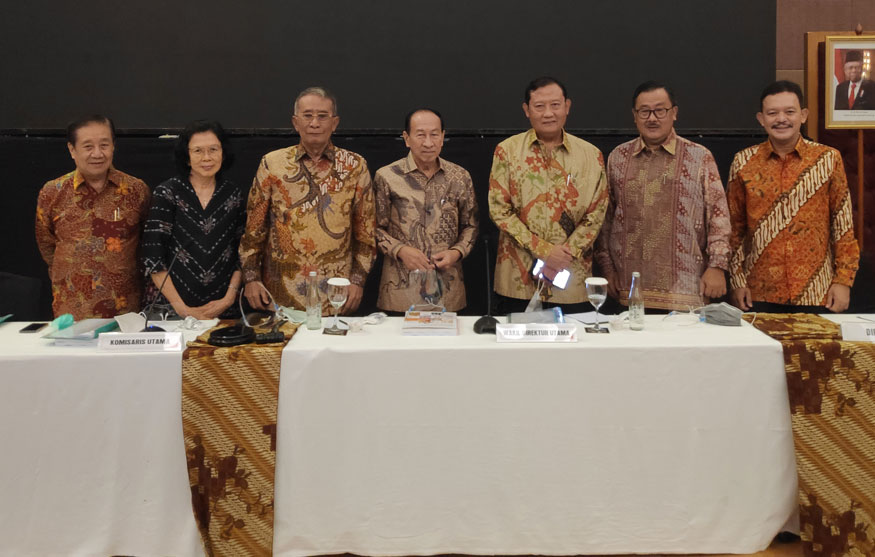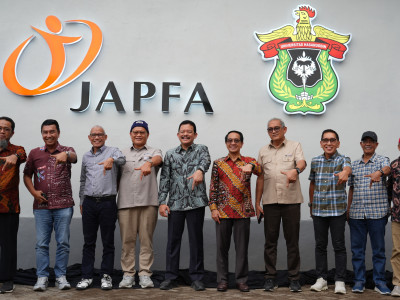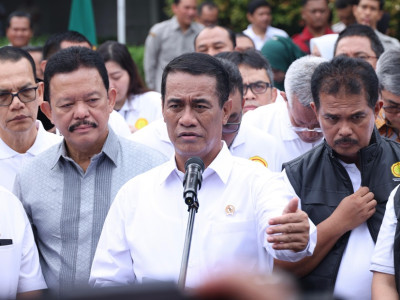Celebrating 50th Anniversary, JAPFA Remains Optimistic Through the COVID-19 Pandemic
- In 2020, JAPFA recorded net sales of IDR 36.96 trillion and EBITDA of IDR 3.89 trillion.
- This year, PT Japfa Comfeed Indonesia Tbk (JAPFA) is celebrating its 50th anniversary and will remain focused on being an affordable animal protein provider through upstream-downstream integration.
- Founded in 1971, JAPFA has successfully maintained a high market share during its 50 years of operation in Indonesia.
Jakarta, 15 April 2021 PT Japfa Comfeed Indonesia Tbk (JAPFA) recorded net sales of IDR 36.96 trillion, profit for the year after the effect of merging entity’s income adjustment of IDR 1.22 trillion, capital expenditure (capex) of IDR 1.65 trillion, and JAPFA's total assets of IDR 25.95 Trillion, which is reported today at the 2021 General Meeting of Shareholders (GMS).
Until now, the COVID-19 pandemic is still the biggest challenge for companies. The COVID-19 pandemic has hampered the pace of the economy and caused people's purchasing power to drop sharply which has an impact on company performance. Apart from various stimuli carried out by the central government, in 2020 the Indonesian economy will still experience a downturn of 2.07%.

"Facing the current conditions, the Company has taken several strategic steps since 2020. Among them are postponing non-essential capital expenditures, acquiring PT So Good Food (SGF) and signing a joint venture with Hendrix Genetics Aquaculture BV to establish Broodstock Multiplication Center (BMC) in Indonesia," said Leo Handoko Laksono, Director of JAPFA.
In making capital investment (capex), JAPFA will also remain cautious, considering that the COVID-19 pandemic has also affected changes in people's current consumption patterns. Therefore, the capex will be prioritized for investments that are short-medium term and routine, with adjustment possibility, taking into account the country’s economic recovery.
Leo also explained other strategies that have been formulated, including consistent in monitoring and prudent cash management, focus on improving efficiency and profitability, and strengthen its downstream business through developing poultry processing and consumer products segment, as well as encouraging retail sales growth to consumers through retail outlets owned by the company, both offline and online. Most importantly, companies also continue to educate the importance of animal protein for health, in line with the Government's program to reduce stunting.
Closing Q1 2021, on March 23 to be precise, JAPFA also succeeded in placing the Sustainability-Linked Bond (SLB) in US dollar, the first from Southeast Asia, and the first of its kind in the agri-food industry globally.
"We are optimistic that JAPFA's long-term prospects and sustainable growth are still wide open, given Indonesia's very large population. We will also strive to continue to educate poultry and aqua farmers in Indonesia so that the products produced can have strong quality and competitiveness.” concluded Leo.
50 Years of JAPFA: Celebrating Our Achievements, Embracing Our Future
JAPFA, which was founded in 1971 in Surabaya, currently operates 16 animal feed factories, 76 Breeding Farms, 30 hatchery units, covered more than 10.000 commercial farms, 17 Poultry Slaughterhouses, and 3 Ready to Eat factories managed by the Poultry Division. The aquaculture division manages 10 shrimp hatcheries, 3 freshwater fish hatcheries, 5 fish and shrimp feed factories, 7 ponds designated for shrimp, fish and eel, as well as 3 cold storage and aquaculture processing. Meanwhile, the beef cattle division manages 3 locations for cattle fattening farms and beef cattle breeding farms, as well as 1 beef processing plant.
JAPFA listed its shares on the Indonesia Stock Exchange in 1989 with a market capitalization of IDR 17.18 trillion as of December 31, 2020. In its 50 years of journey, JAPFA strives to continue to grow and become a leader in becoming a provider of affordable and quality animal protein by providing the best for all products produced through the application of high biosecurity standards, animal science and the latest and updated technology, as well as strict and comprehensive quality control in every line of business.


